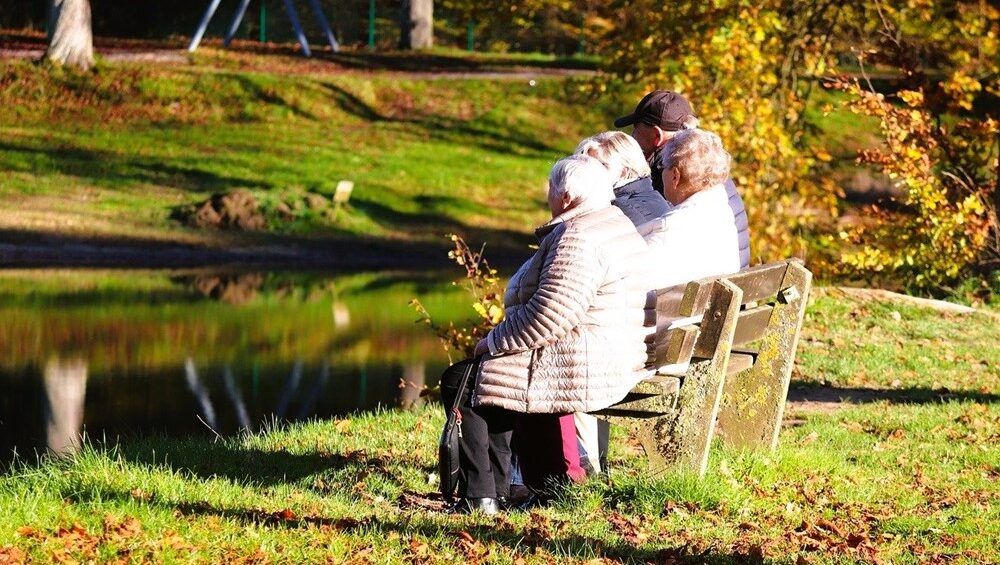As the global population ages, the importance of effective senior care programs and engaging community activities for seniors has become increasingly critical. These initiatives address the basic needs of older people and enhance their quality of life, promote mental and physical health, and encourage social connections.
In this blog, we will explore the best senior care programs, their benefits, and how community activities can help seniors grow and flourish.
Best Senior Care Programs for the Elderly and Their Benefits
As our loved ones age, finding the right care solutions that ensure their well-being becomes increasingly important. We at Care For You India provide a range of senior care programs customised to address the specific needs of older individuals. These programs provide essential support, helping to improve their quality of life while ensuring they receive the care and attention they deserve.
Here’s a look at some of the best senior care programs and the benefits we offer:
- In-Home Care Services
In-home care services enable seniors to stay in the comfort of their own homes while receiving personalised support. This program typically includes:
- Personal Care Assistance: Trained caregivers help with daily tasks such as bathing, dressing, grooming, brushing teeth, shaving, toileting, bladder and bowel management, menstrual care, and eating and drinking.
- Companionship: Caregivers provide social interaction, reducing feelings of loneliness and promoting emotional well-being.
- Health Monitoring: Regular health check-ins help manage chronic conditions and ensure adherence to medication.
Benefits: In-home care allows seniors to maintain independence while receiving necessary assistance, contributing to better mental health and overall satisfaction.
- Physical Divyang Services
Physical Divyang services support individuals with physical disabilities, such as spinal cord injuries or loss of limbs due to accidents. This program typically includes:
- Personal Care Support: Assistance with daily activities like showering, dressing, and grooming to enhance independence.
- Physical Therapy: Tailored therapy exercises to increase strength and mobility.
- Occupational Therapy: Supports developing skills for daily living and improving functional abilities.
- Mobility Aids: Helping them with the use of equipment such as wheelchairs or walkers to facilitate movement.
Benefits: Our skilled staff is dedicated to helping individuals achieve greater independence and improved quality of life through personalised therapy and support, allowing them to engage fully in daily activities.
- Behaviour Support Services
Behaviour support services address challenging behaviours and promote positive change in individuals. This program includes:
- Functional Assessments: Evaluations to identify causes of problematic behaviours.
- Behaviour Support Plans: Customised plans developed with individuals and families.
- Behaviour Interventions: Strategies to effectively manage challenging behaviours.
- Training and Support: Guidance for caregivers and support staff.
Benefits: These services help individuals with intellectual disabilities develop coping strategies, improve emotional regulation, and enhance social interactions, leading to better overall well-being.
- Respite Care Services
Respite care offers temporary relief for family caregivers, allowing them to take a break while ensuring their loved ones receive quality care. This can include:
- Short-Term Stays: Seniors can stay in assisted living facilities or receive home care services for a limited time.
- Flexible Scheduling: Respite care can be arranged for a few hours, days, or weeks, depending on the caregiver’s needs.
Benefits: Respite care helps prevent caregiver burnout, ensuring they can continue providing quality support for their loved ones.
- Palliative and Hospice Care
Palliative and hospice care focuses on providing comfort and support for individuals with serious illnesses. Features include:
- Comprehensive Support: Care addresses physical, and emotional needs, ensuring comprehensive comfort.
- Family Support: These programs often include counselling and assistance for families, helping them navigate difficult decisions.
Benefits: Palliative and hospice care prioritise the quality of life and dignity, offering peace and support during challenging times.
- Group Activities/ Day Programs
Group activities and day programs encourage social interaction and enhance well-being among individuals requiring care. This program typically includes:
- Social Engagement: Opportunities for participants to connect with peers and build meaningful relationships.
- Recreational Activities: There are a variety of engaging options, such as crafts, games, exercises, karaoke, and informative sessions, tailored to diverse interests and abilities.
Benefits: These structured events promote mental stimulation, a sense of belonging, and a supportive environment, significantly improving the quality of life for seniors and participants.
How Community Activities for Seniors Can Help Them Grow
Community activities for seniors are essential for promoting personal growth, social connections, and overall well-being. Here are some of the benefits these activities provide:
Enhanced Social Engagement
- Building Friendships: Participating in community activities allows seniors to develop friendships and strengthen existing relationships, reducing feelings of loneliness and isolation. Studies have demonstrated that social engagement can help reduce feelings of loneliness.
- Networking Opportunities: Seniors can connect with others who share similar interests, creating a supportive network that encourages social interaction. This network can also provide resources and information about local services and support.
Physical Health Benefits
- Promoting Physical Activity: Many community activities, such as group exercise classes, gardening clubs, and walking groups, encourage seniors to stay active. According to the World Health Organization, regular physical activity can minimise the risk of chronic diseases by 28-32%.
- Improved Mobility: Engaging in physical activities helps maintain mobility and balance, which is crucial for preventing falls—a leading cause of injury among seniors.
Cognitive Stimulation
- Mental Challenges: Activities such as puzzles, games, and art classes can stimulate cognitive function, helping to maintain mental sharpness. Participating in mentally stimulating activities can lower the risk of dementia.
- Lifelong Learning: Many community programs offer classes on various subjects, allowing seniors to continue learning and expanding their knowledge. This keeps their minds active and enhances their confidence and social skills.
Emotional Well-being
- Boosting Self-esteem: Participating in community activities helps seniors feel valued and appreciated, boosting their self-esteem and overall happiness. According to a study by the National Institute on Aging, individuals who participate in community activities report higher levels of life satisfaction.
- Providing Purpose: Many activities allow seniors to contribute to their community, giving them a sense of purpose and fulfillment. Volunteering has been proven to enhance mental health and life satisfaction among older adults.
Conclusion
Senior care programs and community activities for seniors are vital in enhancing the quality of life for older adults. From personalised home care services to engaging community programs, these initiatives provide essential support and opportunities for socialisation, physical activity, and cognitive stimulation.
By creating an environment that promotes growth, connection, and well-being, we can ensure that seniors lead fulfilling lives and remain active participants in their communities.





